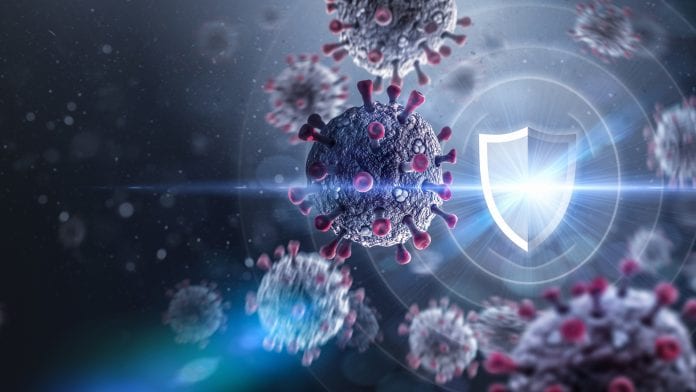
New research has suggested that immunity to COVID-19 could last for up to eight months following infection.
The findings, which were based on blood samples from 188 COVID-19 patients, have suggested that responses to COVID-19 from components of the adaptive immune system can last for at least eight months after the onset of symptoms from the initial infection.
The research has been supported by the National Institutes of Health’s National Institute for Allergy and Infectious Disease, the John and Mary Tu Foundation, UCSD Infectious Diseases Division, the Bill and Melinda Gates Foundation, Mastercard, Wellcome Trust, Emergent Ventures, the Collaborative Influenza Vaccine Innovation Centers (CIVIC), the JPB Foundation, the Cohen Foundation, and the Open Philanthropy Project, as well as private philanthropic contributions.
The findings have been published in the journal Science.
Long-lasting immunity
COVID-19 survivors have protective immunity against serious disease from coronavirus for months, or possibly years after infection, according to the findings, which clarify COVID-19 data from other labs showing a dramatic reduction of COVID-fighting antibodies in the months following infection. The findings showed that the body also has immune cells called memory B cells which could reactivate and produce SARS-CoV-2 antibodies to fight re-infection, as well as T cells.
LJI Professor Alessandro Sette, who co-led the study with LJI Professor Shane Crotty, and LJI Research Assistant Professor Daniela Weiskopf, said: “Our data suggest that the immune response is there – and it stays. Of course, the immune response decreases over time to a certain extent, but that’s normal. That’s what immune responses do. They have a first phase of ramping up, and after that fantastic expansion, eventually, the immune response contracts somewhat and gets to a steady state.”
Crotty added: “We measured antibodies, memory B cells, helper T cells, and killer T cells all at the same time. As far as we know, this is the largest study ever, for any acute infection, that has measured all four of those components of immune memory.”
Implications for vaccines
The results are also promising for vaccines, suggesting that it is possible there is long lasting immunity following vaccination.
Weiskopf said: “It is possible that immune memory will be similarly long lasting following vaccination, but we will have to wait until the data comes in to be able to tell for sure.
“Several months ago, our studies showed that natural infection induced a strong response, and this study now shows that the responses lasts. The vaccine studies are at the initial stages, and so far, have been associated with strong protection. We are hopeful that a similar pattern of responses lasting over time will also emerge for the vaccine-induced responses.”
The team cautions that protective immunity does vary dramatically from person to person, for example, those with a weak immune memory may be vulnerable to a case of recurrent COVID-19 in the future, or they may be more likely to infect others. The team is working to understand how immune memory differs across people of different ages and how that may influence COVID-19 case severity.






















